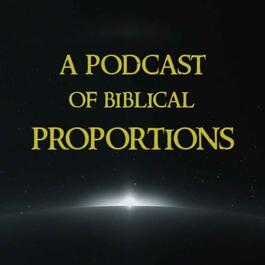
A Podcast of Biblical Proportions
The stories, songs, and laws of the Hebrew Bible have shaped our world, and people wrote them. Regular people, like you and me. Once we understand that the biblical authors were just people, we can learn a lot of new things about these texts. Join Hebrew-speaking writer and editor Gil Kidron on a journey of biblical proportions, going over the biblical books in order, and leaving no stone unturned
Show episodes
The ancient Hebrews played and listened to music, and they wrote about it in the Bible. Dr. Jonathan Friedmann is an expert on the topic and he joins Gil to discuss their musical culture. Read more about the topic from Dr. Friedman: Music in Biblical Life Music in the Hebrew Bible Academia.edu articles about Ancient He
In our third installment comparing the Hebrew and ancient Greek versions of the Bible, Garry Stevens of the History in the Bible podcast joins Gil to talk about the two versions of King David's origin story. Which is the better of the two? Join our tribe on Patreon! Check out these cool pages on the podcast's website
In our second installment comparing the Hebrew version of the Bible with the ancient Greek one, Garry Stevens of the History in the Bible podcast joins Gil to talk about an obscure but fun book Join our tribe on Patreon! Check out these cool pages on the podcast's website:Home PageWho wrote the Bible: Timeline and au
There are many differences between the Hebrew and Ancient Greek versions of the book of Jeremiah. Can we explain them? Yes, we can. Garry Stevens from the History in the Bible podcast joins Gil for this new series Join our tribe on Patreon! Check out these cool pages on the podcast's website:Home PageWho wrote the Bi
In this episode, we're looking back and gleaning new insights from our season about the fourth biblical book Join our tribe on Patreon! Check out these cool pages on the podcast's website:Home PageWho wrote the Bible: Timeline and authorsAncient maps: easy to follow maps to see which empire ruled what and when Click
When read in context, the Maccabean texts in the book of Numbers reveal the processes that led to the fall of the Hebrew state. Our chapters for today are Numbers 1, 3, 4, 8, 15, 18, 19, 20, 25, 27, 29, 30, 31, 33, 34, and 35. Join our tribe on Patreon! Check out these cool pages on the podcast's website:Home PageWho